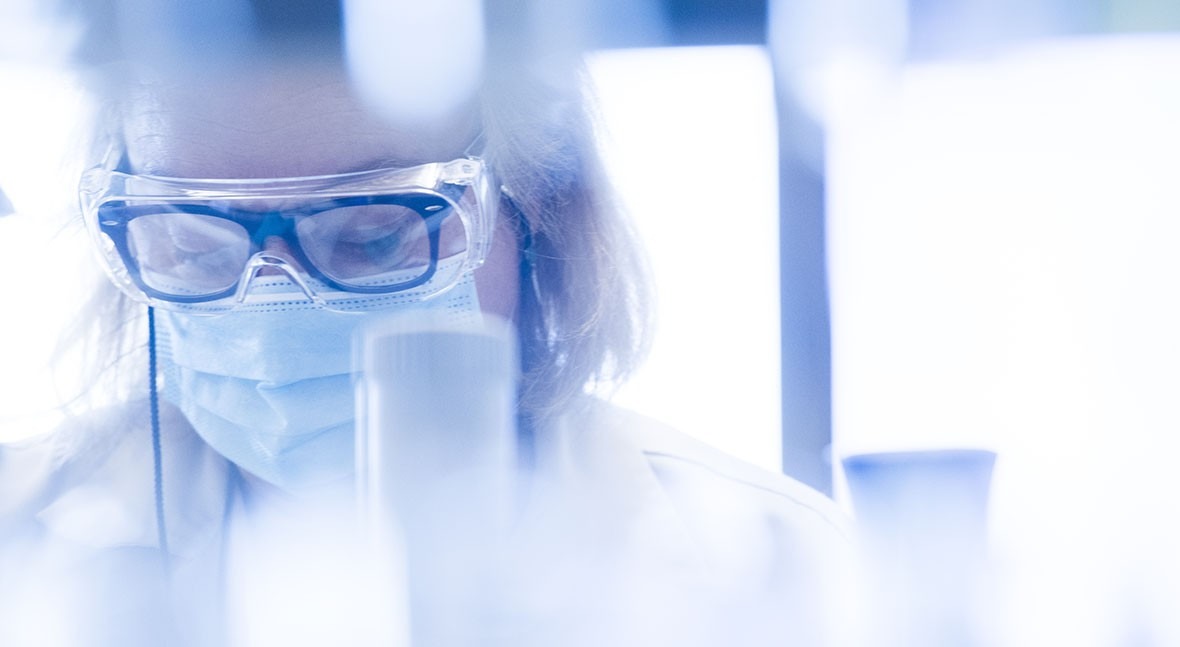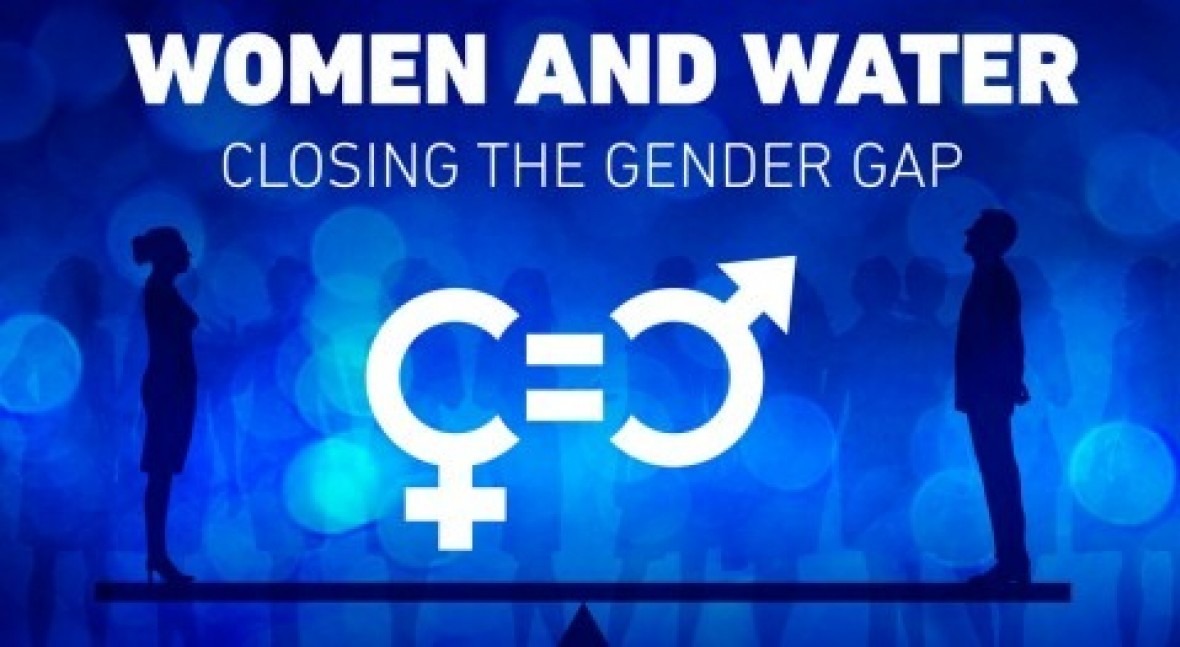International Day of Women and Girls in Science: I.D.E.A.S. for change

Gender equality has always been a central theme of the United Nations, as they believe that gender equality and the empowerment of women and girls can contribute decisively not only to the economic development of the world, but also to the progress of the 2030 Agenda for Sustainable Development.
That is why every February 11 is celebrated as the International Day of Women and Girls in Science, and this year focuses on the role of women, girls and science as relates to the Sustainable Development Goals (SDGs), in particular, SDG 6 (clean water and sanitation), SDG 7 (affordable and clean energy), SDG 9 (industries, innovation and infrastructure), SDG 11 (sustainable cities and communities) and SDG 17 (partnerships for the goals). On the subject of water, there will also be a follow-up on discussions on water under the theme "Water Unites Us" in the various United Nations fora as a contribution to the 2023 United Nations Water Conference, to be held next March.
The problem does not lie in the lack of opportunities as such, but in that women are not always valued as they should
Women and girls represent half of the world's population and, therefore, also half of its potential, so it makes little sense to exclude them from the scientific and technological community. However, as they attempt to advance professionally in these fields, inequalities and discrimination have historically thwarted their potential. Despite the progress made in recent decades, according to the UN, even today women often receive more modest research grants than their male colleagues. Moreover, although they represent 33.3% of all researchers, only 12% of the members of national science academies are women.
The International Day of Women and Girls in Science is celebrated every year on February 11
The problem does not lie in the lack of opportunities as such, since there is a large job market in the technological and cutting-edge fields that drive the Fourth Industrial Revolution, but in that women are not always valued as they should: women researchers tend to have shorter and lower-paid careers. In addition, their work is underrepresented in high-level journals and they are often not considered for promotions.
As UN Secretary-General António Guterres says: "We can all do our part to unleash our world’s enormous untapped talent – starting with filling classrooms, laboratories and boardrooms with women scientists."

Hidden figures
Innovate. Demostrate. Elevate. Advance. Sustain (I.D.E.A.S.)
The theme of the International Day of Women and Girls in Science 2023 is I.D.E.A.S., an acronym that points to the way forward to connect the international community and women in science with the aim of strengthening the links between science, politics and society to seek strategies to improve women’s future.
The UN says we must do more to promote women and girl scientists: through scholarships, internships and training programmes; through quotas, retention incentives and mentorship programmes; but, above all, by eliminating stereotypes, biases, and structural barriers.
The UN says we must do more to promote women and girl scientists
INNOVATING is part of society's progress and this cannot be achieved without half of the available potential, namely women. Throughout their lives - and I would dare say both personally and professionally - women and girls have to prove their worth in the face of the constant judgments they are subject to about what they are or are not capable of doing; and it is high time to DEMONSTRATE that the prejudices around professions for men and professions for women, or male sectors and female sectors, have truly been left behind, because the economic, social and environmental challenges that concern the 2030 Agenda leave no room for gender stereotypes. It is time to ELEVATE the key role played by women in the scientific and technological community and ADVANCE equal opportunities and recognition, as well as the empowerment of women and girls beyond the scientific field. SUSTAIN gender equality as a fundamental and indispensable human right, as proclaimed by the UN, "to achieve peaceful societies with full human potential and sustainable development".
Women, girls and water
Water plays a fundamental role in sustainable development, and women and girls have an important role to play, for better or worse. The International Day of Women and Girls in Science seeks to enhance the positive aspects of the relevance of women and protect them from the negative ones, in relation to the 2030 Agenda and, within it, in SDG 6 on water and sanitation.
Women play a crucial role in the management and protection of water at the household level, especially in developing countries. According to UN Women, in 80% of households with water shortages, women and girls are responsible for water collection. This not only means travelling long distances every day to collect water, with a high risk of violence, but also means that girls miss out on school while doing so. In addition, there is a lack of gender-segregated sanitation facilities adapted to the needs of girls in schools, which means that they also miss school when they are menstruating.
The retention of women in water utilities is hampered by a lack of gender-sensitive policies and a discriminatory workplace environment
In addition, women are largely absent as stakeholders in the management of water resources and infrastructure in more developed countries, thus their views are not used in the workforce. In this regard, according to the report Women in Water Utilities – Breaking Barriers by the World Bank and GWSP, there is a need to understand the main barriers women face in their careers within the sector and "identify interventions that water companies can put in place to increase gender diversity in the water workforce."
It is true that the proportion of women professionals in the water field has grown in recent years, however, this same report argues that "the retention of women in water utilities is hampered by a lack of gender-sensitive policies and a discriminatory workplace environment."
The International Day of Women and Girls in Science will showcase best practices, strategies and solutions to address the challenges and opportunities of the Sustainable Development Goals from a female perspective, as "removing constraints to better jobs for women has wider economic and financial benefits at the national level," as the World Bank report above states, and the water sector is a major player to lead the way and set an example for others.

“Women and Water: Closing the Gender Gap” was created with the aim of giving a voice to the water women professionals of the sector around the world. This section includes interviews and articles of women who work to achieve parity in their career development
Female talent in STEM
The barriers, glass ceilings and bottlenecks that still exist in scientific and technological work environments mean that the number of women opting for STEM (science, technology, engineering and mathematics) careers is not only not increasing, but the trends point to a worrying decline. A study of the Social Observatory of the "la Caixa" Foundation on attracting female talent to STEM careers points out that women who pursue STEM careers have better academic performance than men, however, in Spain, only 16% of professionals in the area of STEM are women, and very few teenage girls, 0.7%, are interested in studying a degree in these disciplines, compared to 7% of men.
The main reason for these low figures is the low representation and value given to female talent afterwards, as discrimination, biases, social norms and even the expectations placed on each gender, influence the previous choice. UNESCO says in its report Cracking the Code: Girls' and women's education in science, technology, engineering and mathematics (STEM), that "girls and women are key players in crafting solutions to improve lives and generate inclusive green growth that benefits all", because "they are the greatest untapped population to become the next generations of STEM professionals", so that investing in their talent is investing in the future.
Women in Science

Dr Rosario Sanchez is a Senior Research Scientist at Texas Water Resources Institute, Texas A&M University. She is also de Director of the Permanent Forum of Binational Waters, and Co-Chair, Transboundary Aquifer Commission, International Association of Hydrogeologists. We asked her about the Forum’s “Women in Science” initiative, a platform where women can share their accomplishments, obstacles, research findings, and their overall experience of being a woman in science:
"Women in Science" is an initiative of the Permanent Forum of Binational Waters that started in 2020 with the objective to highlight and support the work and legacy of women scientists working in water issues across the border between Mexico and the United States. The Forum organizes a series of interviews where these women explain not only their research contributions to science, but also their lifetime contributions as leaders, the challenges they have faced in the field as women, and lessons learned, from which other women, especially new generations of women, can learn.
This effort is based on the Forum's values of equality and diversity and the acknowledgement that today and according to the United Nations, women represent only 33% of all scientists and are typically given smaller research grants than their male colleagues. Additionally, only 12% of members of national science academies are women. Culture still plays a role in defining preestablished roles for women. Women are still responsible for carrying water for potable and domestic use in at least 70% of households in regions with a lack of access to water and sanitation and girls have 80% probability to follow the steps of their mothers. This reality limits the opportunities for education and development for women as they play a vital role in terms of household water security. Nonetheless, women as still a minority in the decision-making process in the field of water resources.
The Women in Science network promotes the inclusion of at least one woman scientist participating in each of our live or prerecorded events. Either young or senior women are always part of our Coffee Breaks, Science Talks or Working Groups. Nearly half of the Forum's network are women working on transboundary water issues.
For me, this is a space were both the host and the interviewee, reflect on how our fears are shared, our mistakes are similar, and our fights are still the same: same retribution for the same work, and different treatment for different conditions. That is the true definition of equality, at least for me as a woman, a mother and a scientist.






